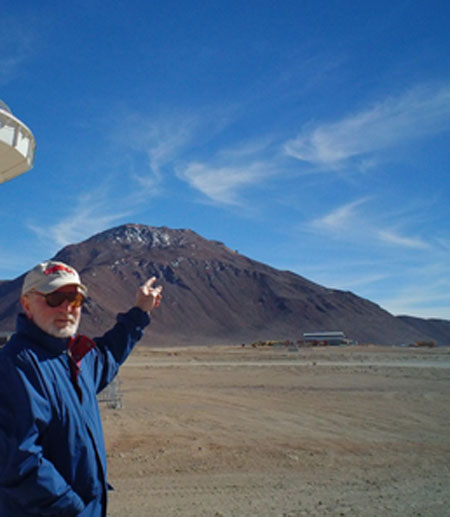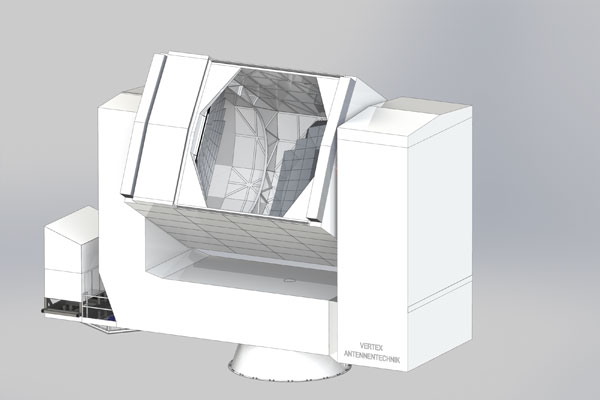Breakthrough Telescope - CCAT-P
April 5th, 2017

By:
Linda B. Glaser,
Arts & Sciences Communications
April 5, 2017
Scientists announced this week that a consortium of U.S., German and Canadian academic institutions led by Cornell University will begin construction of Cerro Chajnantor Atacama Telescope-prime (CCAT-p), a unique and powerful telescope capable of mapping the sky at submillimeter and millimeter wavelengths.
The 6 meter aperture telescope, slated for completion in 2021, will be located near the summit of Cerro Chajnantor in the Atacama Desert in Chile. It will give unprecedented insights into how stars and galaxies form, what lit up “cosmic dawn” – the first stars after the Big Bang -- and the formation and dark-energy-driven expansion of the universe. The telescope’s novel optical design, high-precision mirrors and high-altitude location (over 18,000 feet) will establish the CCAT-p telescope as a premiere facility for astrophysics and cosmology research.
“The CCAT partnership has now spent more than a decade exploring the possibility – and challenges – of building a state-of-the-art telescope at this amazing site. During that time, technology and submillimeter science have advanced at a very rapid pace, and we are now ready to move forward to build a truly exciting telescope,” said project director Martha Haynes, Cornell’s Goldwin Smith Professor of Astronomy. “The new telescope will be a game changer for Cornell in the field of cosmology, putting Cornell at the top of the field.”

